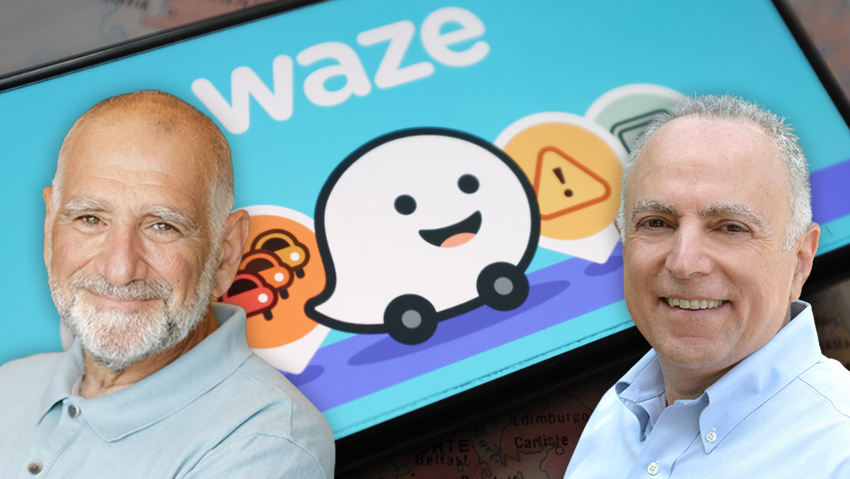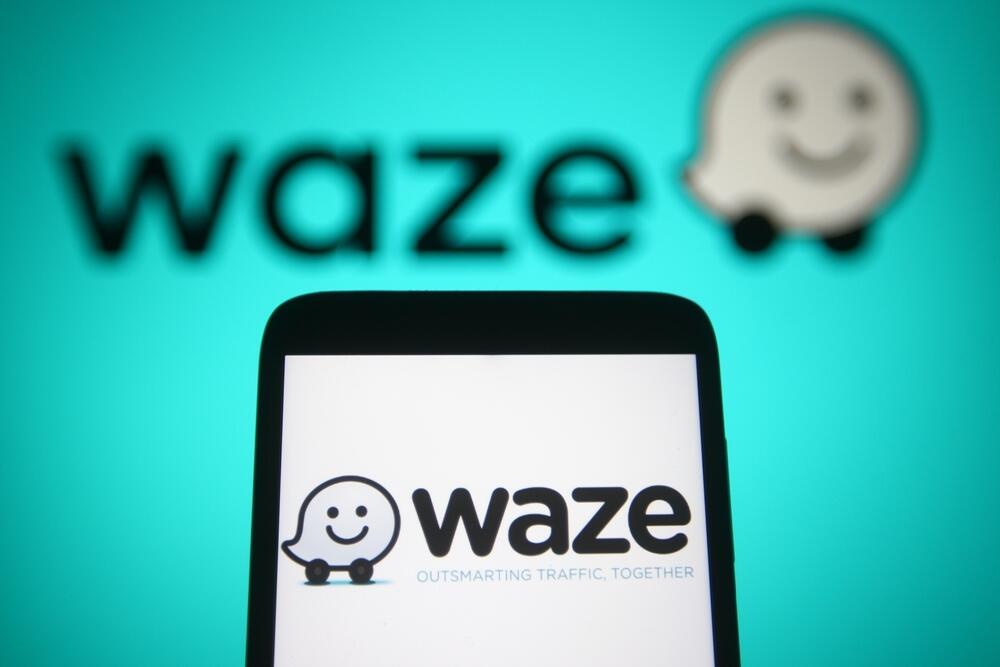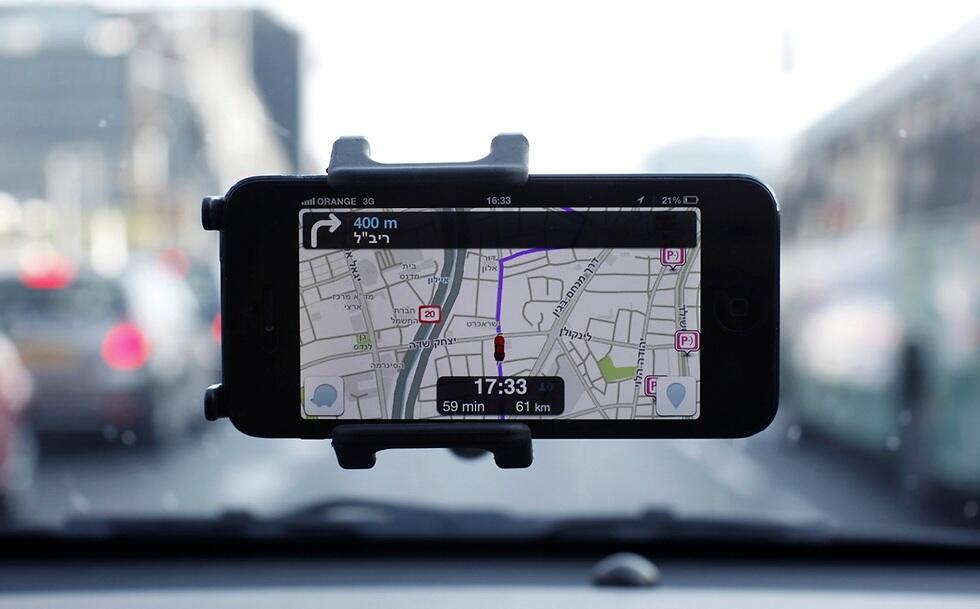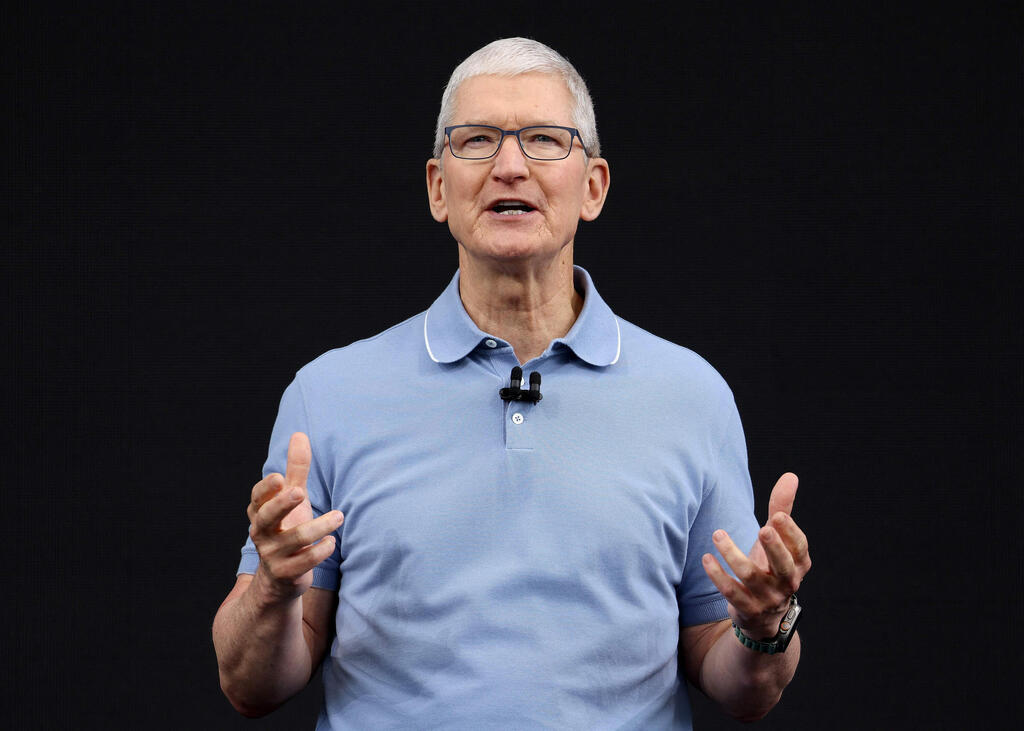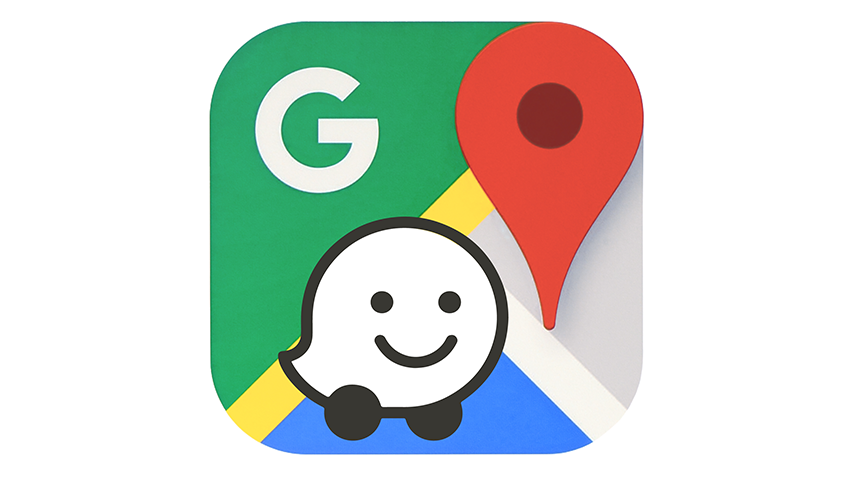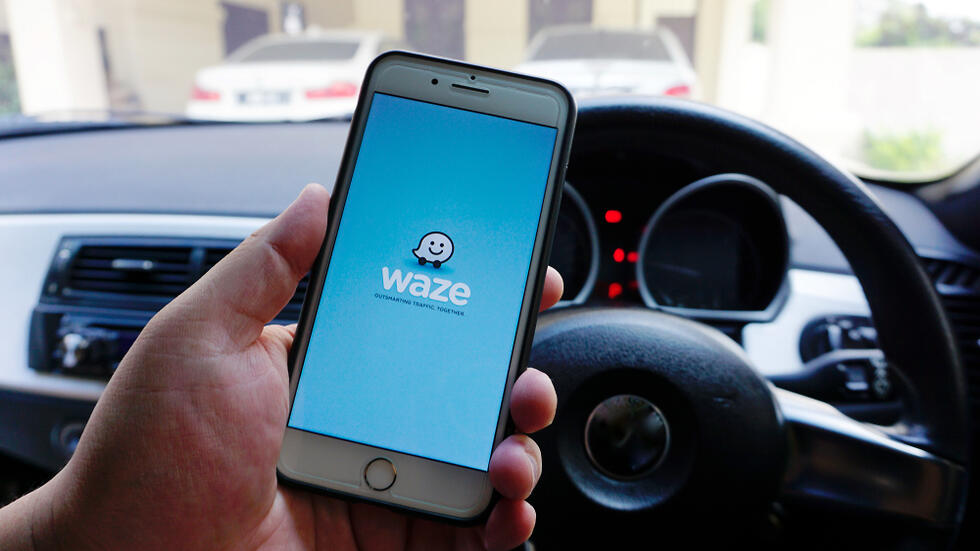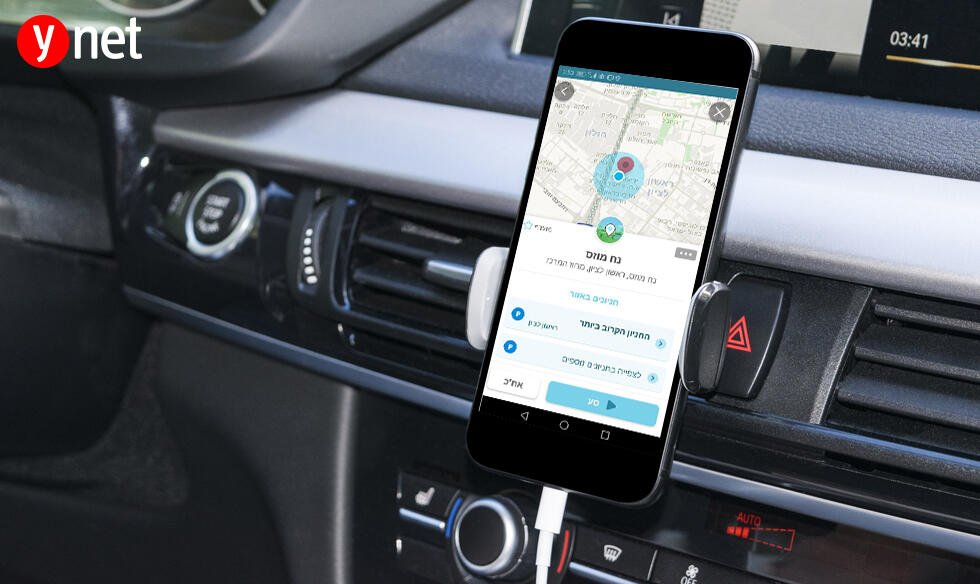"I meet people who tell me they love Waze, but no one has ever told me they love their navigation device or their compass," Ehud Levy, one of the early investors in Waze, tries to explain the secret of success behind the Israeli navigation app. "The company has managed to create a strong emotional connection to the app and, with it, to the community, where one of its foundations is the fight against a common enemy - traffic jams."
Read more:
"What I liked about Waze is that users generate the data, whether it's map data or traffic data on the roads," shares Yahal Zilka, another early investor in the company. "Even more so, I loved the fact that anyone using the app contributes to this effort without having to take any specific action."
This month a decade ago, Waze was acquired by Google for over a billion dollars in one of the largest exits in the history of the Israeli high-tech industry. The high sum, the public profile of Google, and the fact that the app was a popular consumer product with a significant market share, rather than obscure technology operating behind the scenes, have made this deal resonate to this day and be remembered as one of the prominent success stories of the local industry.
Navigating using a smartphone may seem natural to us in 2023, but it was far from the case in late 2007 when Levy and Zilka were introduced to a small Israeli startup called FreeMap.
A few months prior, Apple introduced a new device called the iPhone, the Android operating system had not yet been launched, and most of us were still using relatively unsophisticated mobile phones (remember Nokia?) with small screens. No one at the time thought to rely on a map to get to work or back home, and when it came to navigating an unfamiliar place, we used printed maps or, in the case of traveling abroad, rented dedicated GPS devices.
Levy, a managing partner at the venture capital fund Vertex, recalled that during that same period, GPS chips began to be integrated into phones. "I told myself that finally it was possible to develop mobile apps. I actively searched for GPS-related apps, and that's how I actually came across the company, which greatly impressed me."
During that time, Zilka, a co-founder at Magma Venture Partners, also became acquainted with the young startup founded by Ehud Shabtai, Amir Shinar, and Uri Levine. "From meeting to meeting, they showed me how a map could be created simply by people using the app," he recounts. "By the way, it wasn't yet on a mobile phone but on a PDA device that wasn't connected to the Internet. I knew the implications of what would happen if they transferred it to a phone."
"Why was I enthusiastic? I understood the world of maps, which was then dominated by two companies called Navteq and Tele Atlas," says Zilka. "These two companies spent billions of dollars each year to provide up-to-date maps. How did they do it? By sending vehicles equipped with various devices into the field, by aerial imaging, and through other methods. The costs were very high.
Then a company came along and claimed it could create a map at zero cost, simply by having users travel with the software. Of course, it wasn't the same quality, but the big question was whether it was good enough and how quickly maps could be generated for practical use."
Levy also delved into the world of maps and spoke with industry experts before deciding whether to invest in Waze. "I received fairly consistent answers that it was impossible because people want accurate maps, including the height of bridges and traffic signals. They said it was impossible to rely on the community to build the maps as needed. Let's just say that these responses convinced me to invest in the company."
The two decided to invest in Waze, but Zilka surprised the founders when he suggested doubling the initial funding from $6 million to $12 million. "I believed that it would extend the company's runway, help us attract more users, and increase the likelihood of receiving a higher valuation in the next funding round," he explains.
To that end, Blue Run Ventures and Magma Venture Partners joined Vertex in the venture capital firm. "A $12 million seed round was very, very exceptional at that time," Levy recalls.
The iPhone dilemma
Levy recounts the intense debates that took place in the company's boardroom in its early days. "We had limited resources and we were torn between developing the application for a new product by Apple, a company not known for its expertise in the phone industry, called the iPhone, or developing it for a product that was then used by high socio-economic businesspeople – BlackBerry,” he says.
“In the end, fortunately for us, Apple's side won, and for technical reasons. The iPhone was able to display Waze's graphics quickly and beautifully, so we decided to go for it. But in terms of the user profile, it would have been more logical to develop for BlackBerry. There were many such dilemmas."
In 2009, Waze launched its app in Israel and began searching for a new CEO. Among the final candidates were Noam Bardin and Naftali Bennett. Ultimately, it was Bardin who accepted the offer and led the company until 2021.
When did you actually realize that the app had become a hit?
Levy: "I would say around 2009, when we crossed the threshold of one million users and started growing beautifully. Our metrics were the number of users and usage volume. When we saw that it was becoming exponential, we realized there was something significant here.
It was very challenging. After all, when do you need navigation? When you're going to a place you're unfamiliar with. For a place you know, you don't need a navigation device. But the justification for a mobile application is that you use it frequently. So how do you bridge that gap? It was not trivial to reach a point where we focused on people commuting to work so that they would use the application on a daily basis."
Levy highlights the company's strong focus, which he believes has been maintained to this day and is one of its success secrets. "Waze's proposition to users is 'We'll get you to your destination as quickly as possible.' We won't take you to the most beautiful places, not the most interesting places, not by bike, not by public transportation, nothing. We help drivers commuting to work to arrive at their destination as fast as possible. You can assume that every day someone comes up with a different idea, but the management was focused on this aspect."
A present from Tim Cook
One of the defining events in Waze's history occurred in September 2012, when Apple launched its Apple Maps application, which was plagued with numerous flaws.
"After two or three weeks, Apple issued a statement recommending Waze as an interim solution," recalls Zilka. "Suddenly, there was hype surrounding us. We understood that the issue was hot, and we tried to reach out to the CEOs of major technology companies - Facebook, Microsoft, Google, Apple, and Amazon."
Officially, Waze did not talk about a sale at that time; rather, they referred to an additional funding round that would value the company at around $700 to $800 million. But according to Zilka, when approaching the CEOs of the world's major technology companies and asking them to participate in the funding round, it was clear that the option of a sale was also on the table.
"There was no decision made by the board, there wasn't even such a discussion," he recalls, "but it's completely clear that technology companies always prefer to own the technology rather than invest in it."
Zilka recalls that the company's executives met with the CEOs of most technology companies, but they failed to reach Tim Cook specifically. Amazon withdrew from the race, and Microsoft decided to give up on Waze despite having a strategic investment in the company. In the end, the competition narrowed down to two contenders - Google and Facebook. "Google, with its unimaginable resources, could offer the most generous proposal," Levy recalls.
Was there any hesitation about whom to go with?
Levy: "No. The hesitation was whether to sell or not. We also had a very attractive offer for investment in the company, with a very high valuation, and the hesitation was whether to sell or take this investment, to give it another push and continue building the company. Ultimately, the founders were the ones who made the decision."
Zilka recalls that the deal with Google was closed within a very short period of about a week. "It was amazing," he remembers. He himself thought that Apple would be the most suitable buyer: "They're not a software company, they were the ones who needed Waze the most, they were the ones struggling with their maps."
Why do you think it didn't happen?
Zilka: "To this day, I haven't been able to understand. We pulled out all the stops to arrange a meeting with Tim Cook, and he simply turned us down."
The astronomical sum that Google paid for Waze, $1.1 billion, which was divided among the investors, founders, and employees, returned twentyfold to Levy and Zilka compared to what they invested in the company. Each of their funds earned over $100 million from the sale. "A billion dollars broke the glass ceiling," Zilka says.
We all thought we could achieve more in the future if we continued raising money, but ultimately it was the team's decision. I was willing to continue, but such a deal changes the world for the founders, the CEO, and the employees. You can't stop them. And it's not a bad outcome, it's an excellent, amazing outcome that has yet to come. Surely it's a win for an Israeli company."
"You'll be like YouTube." Over the years, there have been allegations that Google acquired the Israeli company to block competition in the navigation field and that it continues to allocate most of its attention and resources to Google Maps. Noam Bardin strengthened this claim when, in 2021, after completing his role as Waze CEO, he published a scathing post criticizing Google's management.
"We didn't receive any assistance from Google, and any idea we had was quickly adopted by Google Maps," Bardin says.
"The Android app store treated us as a third party." He also pointed out that unlike Google's Maps app, Waze was not pre-installed on Android devices. "All of Waze's growth after the acquisition came from our work, not from the support of the mother ship," he concluded.
Zilka clarifies that he is not familiar with what happened with the company after the acquisition in 2013, but he notes that Google specifically committed to preserving Waze's independence.
"Before we signed the final agreement with them, they said, 'You will be independent like YouTube, go talk to them.' I don't know what the future holds, but so far they have honored their commitment. And unlike YouTube, they didn't have a competing product like Google Maps. They deserve credit for that, and I genuinely tip my hat to them."
Levy agrees: "Google treated Waze very nicely after the acquisition and gave it quite a bit of freedom. The brand was also preserved—Waze didn't become a research and development team for Google Maps. I have to say it was very, very well done on their part."
At the end of last year, Google merged the departments of Waze and Google Maps, and speculation suggests that there will also be a future merger of the two services.
Levy expresses his doubts: "I'm skeptical. I think it would be a mistake for Google to do such a thing, but I could be wrong. There is value in maintaining two brands. The nature of using Waze and Google Maps is different: when I want to get to a specific place as quickly as possible, I open Waze. When I want to know where the opera house is in Milan, I open Google Maps."
The Waze effect
Zilka, today a co-founder of 10D Fund, believes that the Google-Waze deal had a dramatic impact on the Israeli high-tech industry over the years. "Waze and Mobileye (which was acquired by Intel for around $15 billion in 2017 - Ed.) changed the startup landscape.
Before Waze, there were maybe 50 companies dealing with mobility and automotive. Today, there are 650 such companies. The success of these two companies attracted multinational companies to establish research and development centers here in Israel, and now we have the EcoMotion Conference where people from all over the world come to attend."
The success of Waze, Mobileye, and alongside them Wix, adds Zilka, helped redefine the goals of the Israeli venture: "Previously, the norm for Israeli companies was to develop a product that would be a component within a larger framework and sell it for around $200-300 million. Waze showed that if you don't sell early, and instead build a significant company that leads in its category and brings enormous value, the result for entrepreneurs, investors, and the ecosystem is phenomenal."
As evidence, he points out that while in 2013 there were only two Israeli companies with a value of over a billion dollars - Waze and Wix - today there are over a hundred.
In addition, Waze paved the way for other Israeli companies that dared to follow in its footsteps and target the end consumer (B2C) rather than other businesses (B2B). "The Israeli high-tech industry was not previously known for selling to end users, and that was a change," says Zilka. Levy, who left Vertex Ventures in 2014 to establish Canaan Partners, agrees: "Waze was the most significant B2C company that emerged in Israel. Today, it has 150 million monthly users. That's very, very impressive."
Will Google Maps swallow Waze up?
Will Waze still exist in another decade, or will it be assimilated into Google, as has happened to many startups acquired by the technology giant in the past? In December 2022, something significant happened to Waze.
After a decade during which the navigation application operated almost autonomously under Google's sponsorship, the technology giant decided that as part of the company's downsizing, 500 Waze employees would be integrated into the "Geo" department behind Google's mapping products - Maps, Earth, and Street View.
During the process, Google announced that Waze CEO, Neha Parikh, who took over from Noam Bardin only in 2021, will conclude her tenure after a transition period. The company praised Waze's "unique branding, beloved application, and thriving community" and assured that it will continue to operate as a separate service.
One must admit that this is a well-thought-out move, especially in a period of downsizing: there is no economic logic in having different people at Google Maps and Waze working simultaneously on identical features. On the other hand, there have been people arguing for years that it makes no sense for Google to hold two distinct navigation products that ultimately compete with each other.
The integration between Waze and Google Maps is currently only technical; from the users' perspective, nothing should change. However, it is a process that will allow Google to merge the two applications much more easily if it ever decides to do so. Who knows what surprises may arise along the way.



